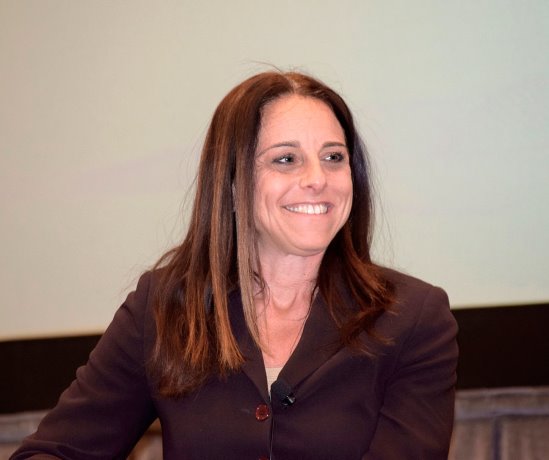Infrastructure Ontario (IO) chose the recent Canadian Council for Public-Private Partnerships (CCPPP) conference in Toronto to unveil a new vendor performance program that could result in penalties that would affect contractors’ rankings at the RFQ stage of IO projects.
The program introduces a scorecard to be assigned to construction contractors who participate in IO projects, with contractors accumulating demerit points for any of 12 infractions based on criteria established by IO and linked to its P3 project agreements.
The scorecard will be included in the evaluation of a project at the RFQ stage, in the Construction Team Member Capability and Experience section. If a contractor has reached a threshold of at least four demerit points over the previous 24 months, that will be weighed against the team’s score as RFQ submissions are evaluated.
The penalty would not affect a team that is first ranked at the RFQ stage, explained Marni Dicker, an executive vice-president and general counsel with IO, but it could hurt teams with lower rankings.
Briefing notes issued by IO indicated, "In order for a construction contractor’s infraction record to cause it to move from a prequalifying position to a non-prequalifying position, a construction contractor must accumulate at least four infractions in the 24-month period before the RFQ submission deadline and must also rank at or very close to the third-place position of a DBF or DBFM RFQ, or at or very close to the fifth-place position of a BF RFQ."
The goal of the new program is to ensure responsiveness and good behaviour among construction contractors hoping to work on IO projects, said Dicker. Firms assembling a team for bids will want to choose partners with clean records, she said.
"When teams are forming, we want teams to ask their construction contractor, what’s your score?" said Dicker. "So that you are making intelligent decisions on whether you want to participate with this particular construction contractor."
Dicker said IO believes the program is the first of its kind used by P3 agencies in the world.
The AFP Vendor Performance Program (VPP), as it’s labelled, will be launched on a phase-in basis in January 2017 and be fully phased in by January 2018. The first year will operate at a 50 per cent phase-in level, meaning a contractor would have to have eight demerits to be penalized during RFQs in 2017.
The construction contractor score will only be disclosed to the contractors themselves, said IO.
Currently there are 16 contractors that have been participating in IO programs over the past 24 months so they will be the first to be given the scorecards, explained IO.
David Ho, IO’s senior vice-president for procurement, has spearheaded development of the program over the last two years and was on hand with Dicker to answer questions during a panel discussion billed as Let’s Get Jurisprudential at the CCPPP conference on Nov. 15.
"Vendor performance in P3s is new but vender performance generally is not new," said Ho. "IO has already had a vender performance program just like other municipalities in our traditional capital construction program.
"It is best practice to consider contractor past performance. The challenge has been how to do that in a P3 environment and we have had enough time to say, after our organization has been up and running, this is something that we should have."
The VPP gives IO a new tool to encourage better performance, said Dicker.
"We need a bigger stick that’s not the project agreement stick of termination," she said. "That is terrible for anyone. We never want to have to terminate a contractor, but we need something for contractors to appreciate."
The first example Dicker gave of an infraction was a stop-work order. Another is revised work schedules. IO has been frustrated in the past by asking contractors for revised schedules and getting no response, she said.
"We’re ignored and we don’t appreciate it because it has programmatic effects," said Dicker. "So that is one of the criteria.
"We are not giving you an infraction because you are late. That is covered in the project agreement. We are giving you an infraction if you fail to send in, as required under the project agreement, a revised schedule so that we can properly plan. It is intended to get contractors to perform and follow the agreement that they signed up for."
There is no need for an appeal process, she said, because in each case the criterion demands either a yes or no answer so there is complete objectivity.
In response to a question from an audience member asking whether larger firms that do more business with IO would be more likely to be affected, Dicker said, "Just because you do more work for us doesn’t mean you are going to be incurring any or more infractions. In fact our results to date disprove that completely."
Construction contractors were targeted in this phase because most problems occur in that phase, said Dicker. She suggested that the program may expand to include other project partners in the future.
The IO executives denied the VPP was similar to the controversial exclusionary clauses found in some procurement protocols.
Asked if there was a link, Ho said, "This is about how we can fairly and transparently consider instances of past performance in our RFQs. There is no such list that results from this program that puts people into a qualified or not qualified status, this is about how do we better consider construction capability and construction experience. That is why we are only talking about a very narrow part of the RFQ scoring."
Dicker said IO has spoken to a number of construction associations prior to publicly unveiling the program at the P3 conference and incorporated feedback, and it will continue to consult with stakeholders and monitor the program’s operation during the first-year phase-in to make "tweaks as required."











Recent Comments
comments for this post are closed